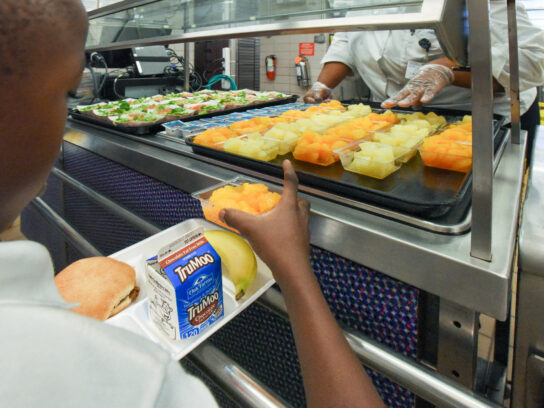
The first phase of the “Healthy Meals for Children” bill went into effect on Wednesday.
Now effective, restaurants in the county will be required to offer at least one healthy beverage option on their kids’ menus. The goal is to provide kid’s another option other than sodas or other sugary drinks.
Those options include:
- plain water or sparkling water that has no favors or carbonation,
- 8 ounces or less of unflavored nonfat or 1% milk, or a non-dairy equivalent with no added natural or artificial sweeteners
- 6 ounces or less of 100% fruit or vegetable juice, or a combination of 100% fruit and vegetable juice
None of the drink options are allowed to have added natural or artificial sweeteners.
The only “no” vote came from Council Member Andrew Friedson who said the requirement should exempt smaller businesses. The Restaurant Association of Maryland also was against the measure saying specific nutritional values should be removed from meal criteria.
Bill 1-22 was first introduced last January and led by former Councilmember Craig Rice. Rice claimed this bill will help families form healthy habits which the pandemic highlighted the importance of and prevent children from experiencing poor health outcomes like diabetes and obesity.
This bill also included a meal component which will go into effect September. This requires restaurants to include at least two unfried fruit/vegetables, 51% or more of whole grain ingredients and/or a lean protein.
The meal portion of the law says the healthy option must include:
- 1/2 cup of unfried vegetables or fruit, excluding juice, condiments, or spreads,
- a whole grain product
- a lean protein, consisting of one ounce or more of meat, seafood, nuts, seeds, beans, or peas, or one egg, or 1/2 cup of nonfat or 1% milk or low-fat yogurt, or one ounce of reduced fat cheese; or a plant-based, nondairy alternative.
If a restaurant violates the law, it could result in a fine starting at $500 and $750 for repeat offenses. The Department of Health and Human Services will be in charge of enforcement.


Comments are closed.